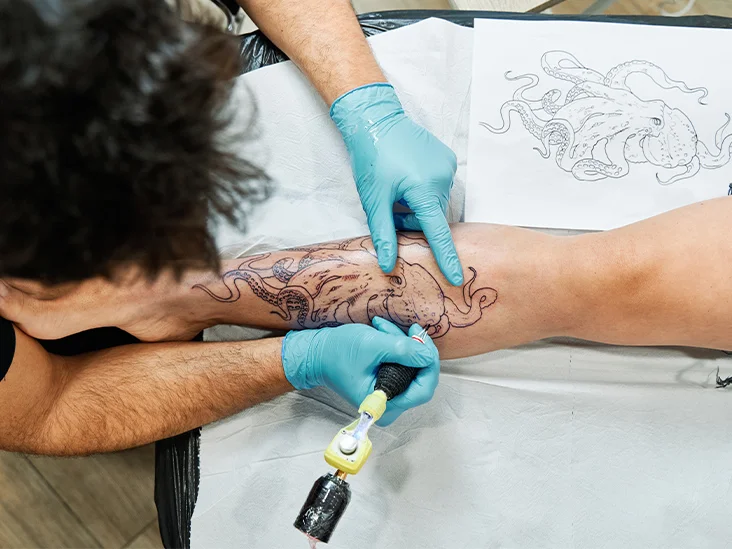Did you know that about 30% of Americans have at least one tattoo? This means that allergies to tattoo ink are also becoming more prevalent. The most common type of allergy occurs to a specific ink color. Red is the most common color to cause a reaction; however, it is possible for any color to cause an allergic reaction. Symptoms may include
- Redness and swelling
- Itch
- Small pimple-like bumps
- Raised, scaly patches
- Deep lumps
- Blisters
- Skin crusts or flakes off
- A watery fluid leaking from the area
Although rare, tattoo ink may cause serious reactions like trouble breathing, increased heart rate, chest tightness, dizziness, upset stomach, intense swelling, and or serious pain. If this happens to you, seek medical attention immediately.
How Do I Know If I’m Allergic to Tattoo Ink?
If you’re thinking about getting a tattoo, it’s a good idea to visit an allergist first. The best way to find out if you’re allergic to tattoo ink is to get allergy tested. An allergy specialist can usually diagnose tattoo ink allergies with a patch test. Patch testing is used to test allergic reactions on your skin. During the patch test, a small amount of the substance is placed on a patch that is then applied to your skin. Positive reactions can be immediate or delayed. Many allergists wait at least 48 hours before removing the patch and then read the test at the 48-hour and 72-hour mark.
It is important to note that just because you may experience a reaction from a tattoo does not automatically mean that an allergy to the ink exists. You could be experiencing an infection or skin irritation as well. Although the symptoms are often similar, there are some differences that may help you distinguish between them.
First, allergy symptoms usually only affect the skin near your tattoo. This means you’ll experience localized itching, burning, swelling, and redness. Generally speaking, you should not experience symptoms all over the body. In rare instances, you could have shortness of breath, heart palpitations, or generalized hives- in these instances, it would be essential to seek medical attention immediately.
An infection can also cause redness, irritation, and itching, but these symptoms usually extend beyond the localized area. They affect the entire part of the body where the tattoo is. You may also experience fever or chills. Infection symptoms also tend to last much longer. They can last anywhere from a few days to a week or more. An allergist will be able to determine if you have an allergy, infection, or skin irritation from the tattoo itself.
Is There Treatment For Tattoo Ink Allergy?
At this time, there is no permanent treatment for an allergy to tattoo ink. Once the allergy had developed, you will likely continue to see symptoms whenever you come into contact with the ink. The best treatment is avoidance. However, there are treatment options to help alleviate symptoms. If you want to discuss how to manage or diagnose your allergy to tattoo ink, visit NY Allergy & Sinus Centers for a quick diagnosis and personalized allergy action plan. We offer nine allergy centers throughout New York City with extended hours at select locations. Call (212) 686-6321 or book an appointment online to get started today!

